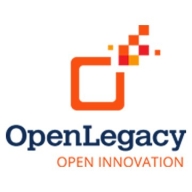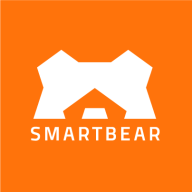

OpenLegacy and SwaggerHub compete in the API management space. SwaggerHub seems to have the upper hand due to its feature-rich offerings.
Features: OpenLegacy focuses on seamless integration with legacy systems, enabling smooth digital transformation. It excels in modernizing outdated infrastructures effectively. SwaggerHub offers extensive design and documentation capabilities, which streamline the API development lifecycle. Its versatility in API design and management, with robust documentation tools, stands out by connecting various development stages efficiently.
Room for Improvement: OpenLegacy could benefit from enhancing its user interface to make it more intuitive. Increased support for non-legacy systems would broaden its scope. Further developing analytics features could provide deeper insights. SwaggerHub may improve by reducing its complexity for first-time users. Expanding integration capabilities would enhance its functionality. Improving user guides and tutorials could assist in better user onboarding.
Ease of Deployment and Customer Service: OpenLegacy provides a straightforward deployment process and excellent customer service, making implementation smoother. SwaggerHub offers sophisticated deployment tools but may present a steeper learning curve due to its comprehensive features. Once familiarized, users find its support in API lifecycle management advantageous.
Pricing and ROI: OpenLegacy offers competitive setup costs by delivering significant ROI through efficient legacy system integrations. Its value proposition balances costs with modernization benefits. SwaggerHub, though potentially more expensive upfront, justifies the expenditure with productivity enhancements, especially for teams involved in API design and collaboration. The choice hinges on whether a business prioritizes initial cost savings with OpenLegacy or the long-term productivity offered by SwaggerHub.
| Product | Market Share (%) |
|---|---|
| SwaggerHub | 1.5% |
| OpenLegacy | 0.9% |
| Other | 97.6% |

| Company Size | Count |
|---|---|
| Small Business | 3 |
| Large Enterprise | 9 |
OpenLegacy helps organizations quickly launch innovative digital services by extending their core back-end systems to the web, mobile and cloud in days or weeks versus months. Our microservice-enabled API integration and management software quickly reduces project backlog by automating and accelerating microservices and API creation, deployment, testing and management from core applications, mainframes and databases. Together, business and IT teams can quickly, easily and securely meet consumer, partner or employee demands for digital services without modernizing or replacing core systems, and without special programming skills or invasive changes to existing systems and architectures. OpenLegacy is designed for ongoing management of microservices APIs and is based on open standards, so our software plays nice with your current technology stack and supports agile, DevOps and continuous development. Learn why leading companies choose OpenLegacy at www.openlegacy.com.
SwaggerHub is an integrated API Development platform, built for teams, that brings the core capabilities of the Swagger framework to design, build, document and deploy APIs. SwaggerHub enables development teams to collaborate and coordinate the entire lifecycle of an API with the flexibility to integrate with the toolset of your choice.
We monitor all API Management reviews to prevent fraudulent reviews and keep review quality high. We do not post reviews by company employees or direct competitors. We validate each review for authenticity via cross-reference with LinkedIn, and personal follow-up with the reviewer when necessary.